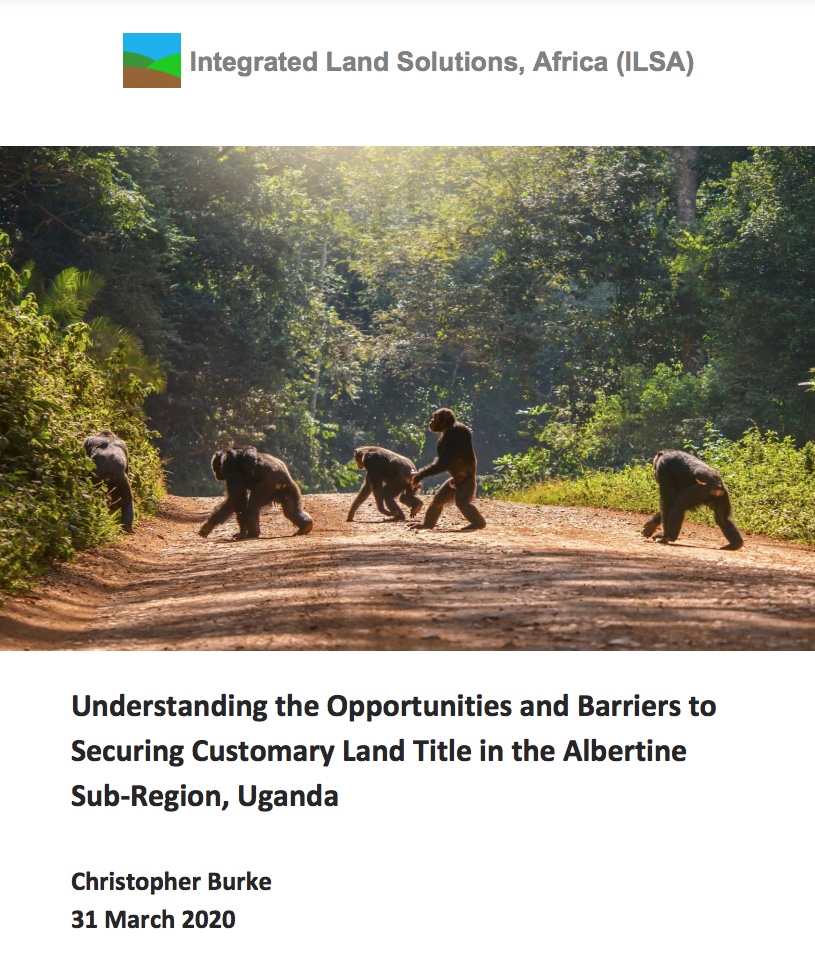Resource information
The land sector in Uganda has attracted a great deal of attention associated with:
- the recently completed computerization of the MLHUD,
- the particular vibrancy of civil society in the land sector,
- Uganda’s full recognition of customary tenure and
- the growing number of initiatives introducing the latest digital communication applications to demarcate and register land.
With less than 20 percent of landholdings in the country currently registered, land governance in Uganda is at the forefront of a profound change as customary land is demarcated and registered. A key challenge is to ensure the equitability of this process involving
- gender and social equality;
- the protection of the poor and vulnerable comprising children and the disabled, and
- the environment.
It is in fact concern for the environment, the wellbeing of chimpanzees and the effects of deforestation that motivated this report. A better understanding of land governance in Uganda will allow the identification and leveraging of opportunities while minimizing or sustainably addressing barriers to customary land tenure security. Assured of tenure security, households are more inclined to better manage the land at their disposal and preserve forests. Such practices support agro-biodiversity, strengthen resilience and facilitate sustainable use of the environment. In addition to the obvious environmental, social, economic and conceivably political benefits, the preservation of forests is essential to the sustainability of the Albertine Sub-Region’s chimpanzees that represents a significant portion of Uganda 5,000 chimpanzee population.
This study was commissioned by IIED, UK.

